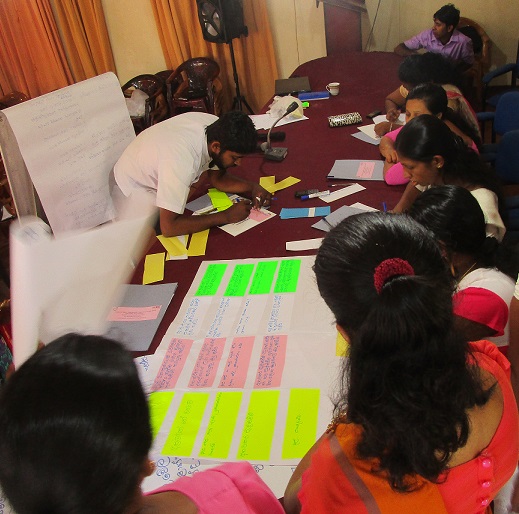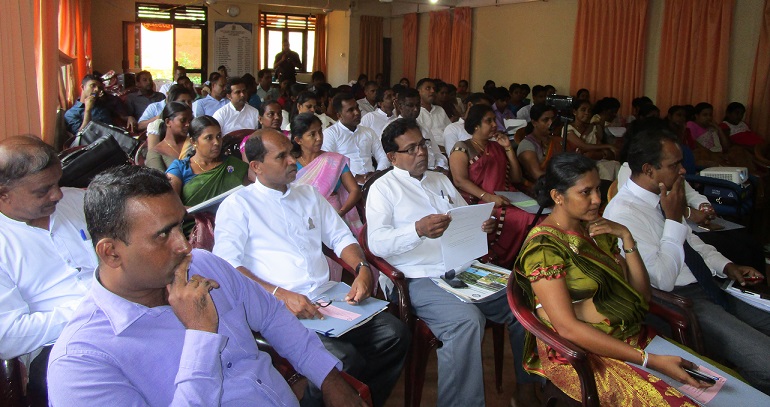Designing pilot projects to improve disaster resilience from floods
In partnership with the International Labour Organization (ILO), IUCN commenced a project designing effort, in October 2018 to establish baseline information and to develop several pilot interventions to use as models to improve flood resilience in the Ratnapura and Kalutara districts.

Group work
Photo: Dinithi Samaratunga\© IUCN
A consultative event with key stakeholder entities was held on 29 October 2018 at the Kalawana Divisional Secretariat. Participants were selected primarily from disaster impacted Kalawana, Ratnapura, Palindanuwara and Bulathsinhala Divisional Secretariat Divisions. About 80 participants including Assistant Divisional Secretaries, Planning Directors, Development Officers and Grama Niladharis (Village level Govt. staff) and staff of the Environmental Foundation Limited and Mihithala Mithuro attended the workshop. The event was facilitated by Dr Ananda Mallawatantri, Country Representative and Ms Dinithi Samarathunga, Project Officer of IUCN Sri Lanka. Introductory remarks for were provided by Ms. Udaya Kumari, Divisional Secretary of Kalawana and Ms. Chamila Weerathunghe, ILO Coordinator for the Project.
The purpose of the event was to identify disaster related issues and potential pilot project sites. IUCN provided the context on environment processes, disaster conditions, ecosystems and climate context (https://goo.gl/sqZ8EJ) based on Eco-DRR tools and landscape engineering approaches. The participants then worked in groups to identify issues in their respective geographic areas and provided possible solutions for selected key issues, indicators and identified the potential stakeholders for interventions.
Four key programme areas identified by the participants were a) demonstration of improved land, water and climate resilience practices at landscape level in tea plantations, b)public-private partnership approach for productivity enhancement in degraded landscapes, c) innovative financial and engagement system for sustainable drainage management and d) solid waste management and evidence-based advocacy and investment planning. Key areas identified for consideration included areas influenced by the water flowing from Maguru and Pelani rivers. Next steps will involve field visits to select sites for pilot projects and develop area specific baselines and project activities.
 Workshop in progress
Photo: Dinithi Samaratunga\© IUCN
Workshop in progress
Photo: Dinithi Samaratunga\© IUCN
